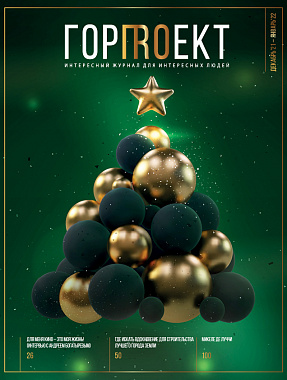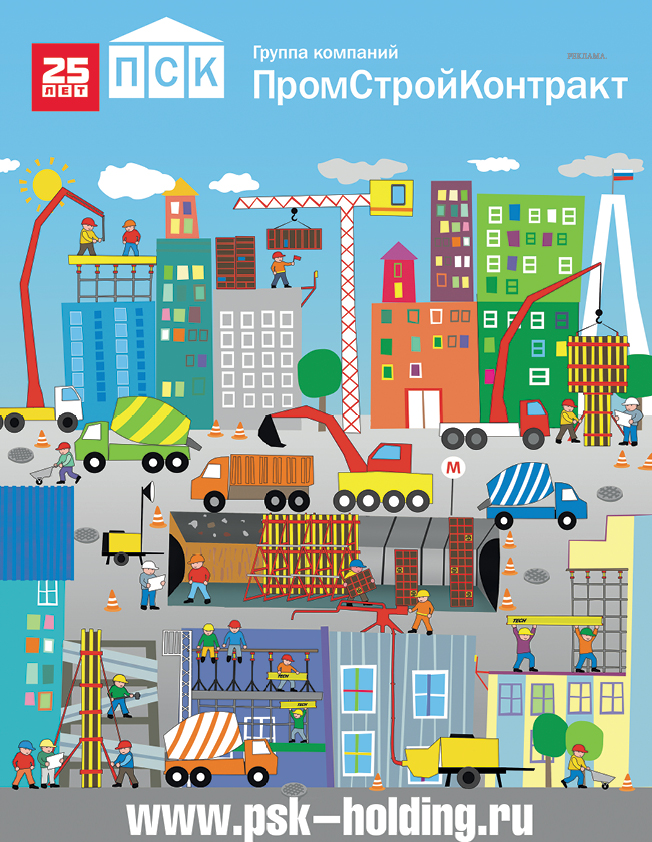Nadezhda Babkina is a People's Artist, founder and artistic director of the Russian Song Ensemble. In a conversation with us, Nadezhda Georgievna told us how the idea of creating a theater and its uniqueness arose, about performances and a recently published book.
GP: Nadezhda Georgievna, where did the idea of the theater come from? You are a singer, a national favorite, a keeper of the traditions of Russian song culture. Why theater? When did you feel like a director?
HOPE: The desire to create my own theater arose in my early childhood, when I, sitting at home under the stove, played with dolls. Thanks to this, I studied pretty well, because each doll had its own role - someone is a teacher, someone is a student. I played skits on the theme of school lessons. She herself, on behalf of the puppet teachers, asked some questions, she herself answered them for the puppet students. Of course, having matured, when the boys began to appear, I abandoned these games. But the dream of creating a real theater continued to live in me.
GP: How long did it take you to create your song theater and what difficulties did you experience?
HOPE: It was fully implemented in 2012. I did not advertise the construction of the theater too much, because there were many who wanted to push me away. But you can't move me that easily! I went to the construction site every day, pretending that I understand all the nuances of construction and notice any flaws, I controlled every step. They feared me like fire! So, you can say, I got another profession - a foreman. A whole commission, architectural organizations, and artists worked on the project. During the construction of the theater, I tried to use interesting ideas and non-standard solutions. I believe that it is necessary to correspond to our "advanced" time. Everything should be very impressive and modern, but at the same time it is necessary to preserve the association with folk art. The entrance to the theater is decorated with four graceful columns lined with natural stone, which emphasizes belonging to the field of art.
GP: What makes your theater unique and different from others?
HOPE: The theater has a unique technological filling. A multi-level and transforming stage allows you to implement a wide variety of creative tasks. For example, the stage can be filled with ice for performances with the participation of figure skaters. If required, an orchestra pit can be set up for performances with a live orchestra present.
We have excellent rehearsal rooms. Now the teams that are part of the Russian Song Theater can rehearse as much as necessary, all conditions have been created for this. We have our own sewing workshop, there is also a museum-repository of folk costume.
GP: As we know, your theater managed to overtake the well-known Lenkom in terms of attendance!
HOPE: Today, the Russian Song Theater is one of the most visited theaters in Moscow. We entered the top three in ticket sales, leaving behind even the famous Lenkom. Do not think that I exalt myself, erect a monument to myself. No, I know my worth very well, I have a lot of shortcomings. And yet, if a person does something useful, it cannot go unnoticed. So, in 2018, the Government of the Russian Federation awarded us a prize in the field of culture for the creation of the Moscow State Musical Theater of Folklore "Russian Song". We cordially open the doors to all national cultures of our vast country. Days of culture of the peoples of Russia, various forums, as well as performances by pop artists, drama performances, charity evenings and, of course, concerts of the Russian Song theater groups are held on the stage of the theater. Our work goes on for two years, because life is full of constant moving, tours, festivals, master classes, participation in new projects. Despite the complete lack of free time, I am grateful to God that everything in our life happens just like that! Indeed, only thanks to the selfless work of our team, the audience leaves the hall after the performance with a sense of pride in our national traditions, our history and song culture!
GP: Why did you decide to put on performances in your song theater? How did you come up with this idea?
HOPE: Each performance that is born within the walls of our theater is not easy. I have been leading the Russian Song team for almost 45 years, and when the building of our theater was already built, the first question arose - where to find worthy employees who would set this mass in motion? And the second - what will be the "stuffing"? Concerts, of which there are plenty in the repertoire of the Russian Song ensemble, lectures on folklore, traditions and originality of our genre cannot fill such a large hall. The idea of musical and dramatic performances was born by accident. One day we are sitting with the director of the theater Anton Sobyanin in our buffet and we are thinking how to fill the repertoire. And at the table sometimes great ideas come to mind! And suddenly Anton says: “Look, Nina Chusova is sitting in the corner, drinking tea!” She was just rehearsing with someone on our stage. I immediately approached Nina with the words: “Few dare to work with the folk genre, but maybe you will try? Let's do something!" She immediately caught fire - and come on! And, without leaving the spot, she decided that she would take on Gogol's The Night Before Christmas. I instantly imagined how our folk songs and wonderful melodious Ukrainian songs would be woven into this work ... The Russian Song Theater began with this performance, which, fortunately, works perfectly.
The first performance was followed by the second, the third… The repertoire was gradually taking shape. And suddenly we decided to take a swing at Shukshin's Kalina Krasnaya. “The performance can be only on one condition,” Anton said, “if Masha Shukshina plays the main role.” I immediately grabbed the phone and called Masha, who, having heard my proposal, laughed - she thought that we were playing a trick on her. And then she came to our theater and realized that everything was serious. The same with "12 chairs". Anton and I looked at each other and almost unanimously pronounced this name. And we decided to do it without hesitation. Because as soon as you start thinking, fears will appear: oh, this is a challenge, oh, how much criticism there will be ... And, by the way, the cities take courage! The last premiere at the theater was the play "Bitter" staged by director Roman Samgin. The audience took the performance with a bang. Chekhov and Zoshchenko are, of course, two independent writers. But they are united by an age-old tradition. And in the play, the link for them was the song. And artists, of course. I was afraid that people would not understand what relation the second act had to the first, what relation Chekhov had to Zoshchenko. But it worked. We had a connecting best man - toastmaster, if in Russian. He organized some kind of undertaking in the auditorium, people filled the entire hall with their emotions and through this they understood the whole idea of the performance. So the wonderful duet of Zoshchenko and Chekhov was a success. In general, this performance was conceived in order to help people overcome their decadent state amid quarantine and a pandemic.
GP: You have one more hall - a small theater stage. What is with him now, how is he used?
HOPE: On Sadovaya-Chernogryazskaya Street there is a small stage of the Russian Song Theater. This cozy, chamber hall with only 150 seats was for many years our home and rehearsal base, where the repertoire was compiled, where concert programs were created at that moment, until the Russian Song acquired a new theater on Olimpiysky Prospekt. As soon as this happened, the children's folklore studio "Heritage" settled on the small stage. The purpose and meaning of the creation of this unique studio is to introduce children from an early age to the preservation of the cultural heritage of the Russian people. It is necessary that the development, maturation, formation of the child take place in accordance with the customs, song and dance traditions, rituals, originality of thinking, which are the national idea of the Russian people.
HP: What is special about this studio?
HOPE: One of the features of the studio is the continuity of generations. We have mothers and grandmothers, for everyone every Friday there are rehearsals. Parents also participate in concerts with their children. While the kids are studying, parents are waiting for them in our cozy and warm lobby. They feel at home: they communicate, drink tea, relax, like one big family. We welcome nepotism and are glad that mothers take an active part in the work of the studio. The studio is very easy to set up. We do not refuse anyone. We accept everyone, without exception. This is our principled position. Any child who wants to join the folk culture can become a member of our team. Every year in September, the studio announces an additional set, but you can join us throughout the year. At the small stage there is a puppet museum created on the basis of my collection. The fact is that I have been collecting dolls all my life. She brought them from tours and folklore expeditions. The exhibition presents a variety of specimens. There are theatrical puppets, case puppets, costume puppets, antique puppets… The museum has a warm, homely atmosphere. There is a guide who, in a figurative and accessible manner, acquaints children with the history of puppetry, tells which doll, from which region it came to us ... Adults must join the children. Thus, there is a rapprochement of two worlds - children's and adult. And then they all go to the hall together to watch a performance performed by the soloists of the folk group "Russians". Each performance is dedicated to a specific time of the year.
GP: You recently had a presentation of your book, and we congratulate you on that!
HOPE: Yes, my book was published, which I decided to call "Fashionable Folk". Of course, I will not say that it was given to me easily and in one breath. Moreover, the tests of the last year were included in the book, and without this it seemed incomplete to me.
HP: What is this book about? What did you want to convey to the reader?
HOPE: In general, when you read this book, analyze it, you understand for yourself: life has beaten me more than once. Therefore, it is rather not a book of memories, but a book of the path. She got very personal. I even said in the preface that it was not written by hand, but told from the heart. I told about how, as a girl, I came from Astrakhan to study in Moscow and stayed there forever, how I founded my own ensemble, and then the theater, about numerous tours, about famous people with whom fate brought me together, and among them is Makhmud Esambaev , Lyudmila Zykina, Iosif Kobzon, Alla Pugacheva ... Well, and, of course, the book is about love. Where are you without her? As it is sung in one of my favorite songs: “To live without love may be simple, but how can one live without love in the world…”. If you asked me what genre the book was written in, I would answer without hesitation - melodrama!


 DOWNLOAD
DOWNLOAD LOOK
LOOK
 Top Content of the Month
Top Content of the Month


